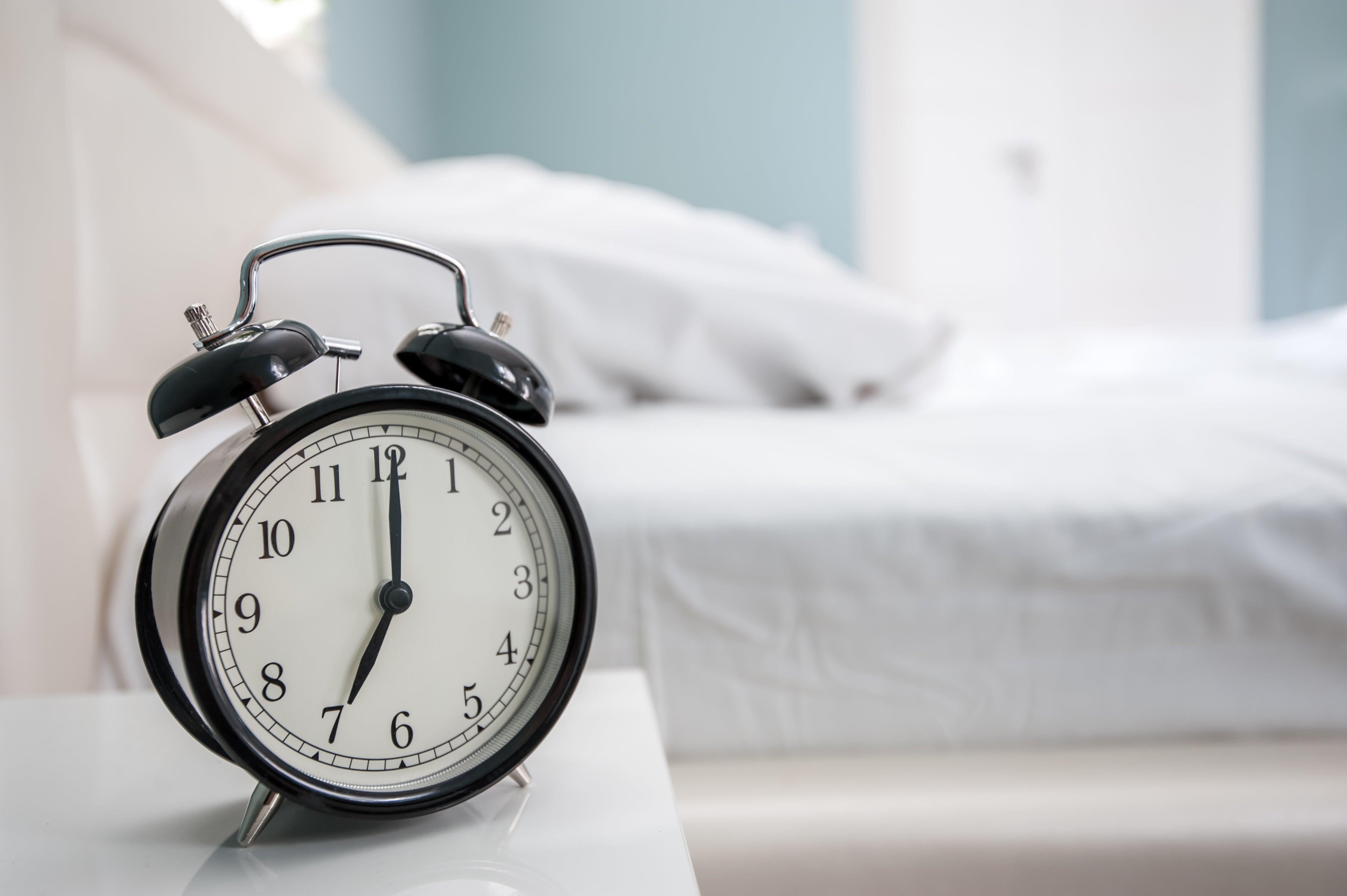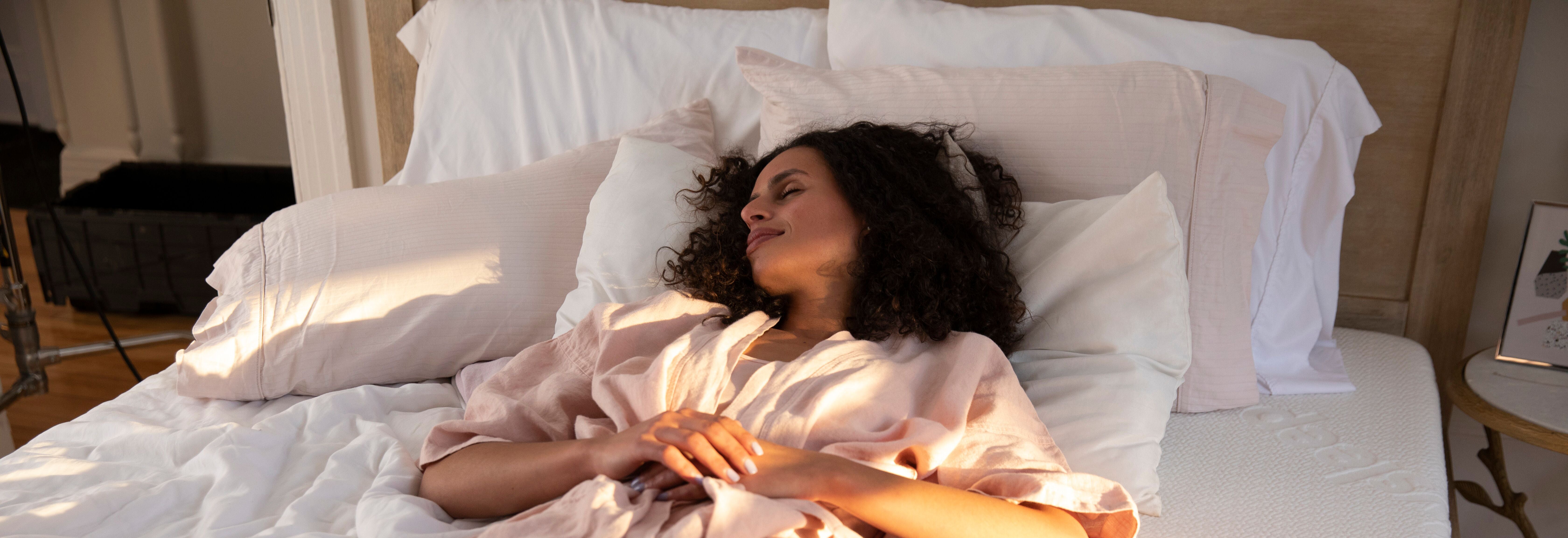One thing is clear: in our 2.0 world, everything is quantified to be optimized. From your phone tracking how much time you spend looking at its screen to your smartwatch counting the number of calories burned at the gym, anything goes! However, one aspect of our lives has yet to be optimized: sleep. Nonetheless, there are tips to have better sleep and they relate to what is called "sleep hygiene". The Center for Interdisciplinary Research in Rehabilitation and Social Integration at Laval University defines it as a set of suggestions on our lifestyle habits and environmental variables that allow us to sleep better.
We invite you to discover how to improve your sleep, as well as that of your children of all ages, with these quite simple recommendations for good sleep hygiene!
Too much sleep is like not enough: get the right amount of sleep!
The first thing to know is that you need to sleep a reasonable number of hours for your age group to be in good health! If you sleep too much or too little, problems will occur.
Sleeping too little in relation to your needs is harmful, with immediate short-term effects. Impaired concentration and alertness, fatigue, irritability, memory difficulties that can lead to learning problems in children and adolescents: the consequences listed by the Public Health Agency of Canada are significant! In the long term, it's even more serious: depression can be on the horizon! Finally, lack of sleep can even disrupt children's growth since the growth hormone is only produced at night.

But too much sleep is just as bad. In fact, a British study published in the Journal of the American Heart Association concludes that individuals with 10 hours of sleep per night are 30% more likely to die of a stroke prematurely than those who sleep between 7 and 8 hours.
How do you know if you're sleeping too much or not enough? The table below gives you the average number of hours of how much sleep you need according to your age group. However, it is for reference only, as everyone's sleep needs are different. In addition, you can monitor your sleep via one of the many applications provided for this purpose by your smartwatch (if you have one). Some of these applications can give you valuable information on the different phases of your sleep in order to optimize it.
Hours of sleep required by age:
|
Age |
Hours of sleep required |
Acceptable amount of sleep |
|
0 - 3 months |
14 to 17 h |
11 to 19 h |
|
4 - 11 months |
12 to 15 h |
10 to 18 h |
|
1 to 2 years old |
11 to 14 h |
9 to 16 h |
|
3 to 5 years old |
10 to 13 h |
8 to 14 h |
|
6 to 13 years old |
9 to 11 h |
7 to 12 h |
|
14 to 17 years old |
8 to 10 h |
7 to 11 h |
|
18 to 25 years old |
7 to 9 h |
6 to 11 h |
|
26 to 64 years old |
7 to 9 h |
6 to 10 h |
|
65 years and over |
7 to 8 h |
5 to 9 h |
Now that you know how much sleep you and your loved ones need, you're probably wondering how to optimize your sleep and/or that of your family? We've divided various recommendations into three parts to improve sleep hygiene for adults, for babies as well as for older children and teens.
Sleep hygiene best practices for adults

Many adults complain about not getting enough sleep and/or not getting enough rest. If you feel concerned, here are some rules that you can follow today to get enough quality sleep:
-
Get in and out of bed at the same time not only on weekdays, but also on weekends and holidays, to regulate your waking-sleeping rhythm.
-
Avoid napping. If a nap is unavoidable, it should be no more than one hour long and, above all, be completed before 3 p.m.
-
Choose a relaxing routine to prepare your body for sleep. This can include:
-
Meditation/relaxation
-
A walk
-
A lukewarm bath maximum one hour before bedtime
-
Do not engage in strenuous physical or mental activity near bedtime. This could have a harmful stimulating effect on falling asleep!
-
Limit the time spent in bed by avoiding any activity other than sleeping: a bedroom is for sleeping!
-
Don't eat too much in the evening because this extends the time needed to digest, which is bad for falling asleep.
-
Don't go to bed empty, otherwise the body is on alert because of the lack of nutrients.
-
Avoid stimulants such as caffeine 4 to 6 hours before going to sleep (so don't drink too much coffee!).
-
Avoid alcohol (which can break up sleep).
-
Avoid screens (TV, smartphone, etc.): they produce blue light that stops the production of melatonin, a hormone essential for sleep and the regulation of the biological clock.
-
Favour an environment conducive to sleep in the bedroom (optimal ventilation, temperature at 19°C, bed with optimum support-to-comfort ratio, complete silence, and total darkness).
-
Never look at the time during the night to avoid anxiety generated by your brain's unconscious calculation of how many hours of sleep are left. Stress is harmful to sleep!
Best practices for babies and toddlers

It’s the role of every adult to instill good habits in their toddler from a young age. It’s important to create a routine for infants to allow them to develop patterns that help them sleep.
Every parent of a young child should:
-
Develop simple and enjoyable steps for Baby's pre-sleep routine.
-
Feed Baby upon request during his/her first few days.
-
Simultaneously set up a rhythm that will allow feeding every 3-4 hours.
-
If it's not feeding time:
-
Avoid breastfeeding or bottle-feeding as soon as Baby cries.
-
Avoid holding Baby in the same position as used when feeding. This, like the previous point, will prevent him/her from associating waking up and/or said position with the feedings.
-
Help Baby differentiate day from night by:
-
Reducing any stimulation from the environment (sound, light) during bedtime.
-
Opening the curtains upon waking to let the light in.
-
Don't use screens close to Baby before two years old, as this can hinder his/her development.
-
Encourage Baby to fall asleep alone as soon as possible by:
-
Putting Baby awake in the bed.
-
Not staying close all the time when he or she is falling asleep.
-
Preventing him/her from falling asleep at the breast/bottle.
-
Don't leave Baby alone awake in bed for more than 20-30 minutes.
-
Detect signs of Baby's fatigue and put him/her in bed when these occur.
-
Make sure that Baby always falls asleep and wakes up in the same place. Waking up in different rooms can lead to sleep disturbances!
Best sleep hygiene rules for older children/teens

Parents of children or teenagers should continue the good sleep hygiene habits they have instilled in them from an early age:
-
Don't use the famous “you're grounded, go to your room”: the bedroom is for sleeping, nothing else!
-
Keep the same routine, during the week and on weekends, without changing the hours of bedtime and getting up.
-
Start their sleep routine at a fixed time, choosing an order of activities that is progressively more relaxing as bedtime approaches.
-
Make them active during the day, but not during the hour before bedtime.
-
Proscribe any stimulating technology 30 minutes before bedtime.
-
Arrange for extracurricular activities to stop early in the evening.
-
Do homework at a time other than the hour before bedtime.
-
Ban all screens in their bedrooms!
-
Avoid exposure to light at night and any sound that may wake them up/keep them awake.
-
Encourage exposure to sunlight as soon as they get up, but also during the day.
-
Maintain a sleeping temperature in their room (18–20°C).
-
Plan supper time 1 to 2 hours before bedtime.
-
Do not feed them foods containing stimulants at least 4 hours before bedtime.
-
Allow a healthy snack before bedtime, such as milk.
So, sleep hygiene allows you to sleep well and live better!
All in all, these sleep hygiene tips are designed to help you and your children get the most restorative sleep possible, regardless of age.
After judging the quality and quantity of sleep in the first instance, it will be the regularity with which you follow these rules and/or have your children follow them that will determine whether or not they are effective. The more you follow them to the letter for you and your little tribe, the greater their effect will be! But a good night's sleep comes from a good mattress. So, if it's time for you to get a new one, don't wait any longer to discover our range of foam mattresses for the whole family!
If you liked our blog article, please don't forget to Share it with your friends by clicking the button below!










